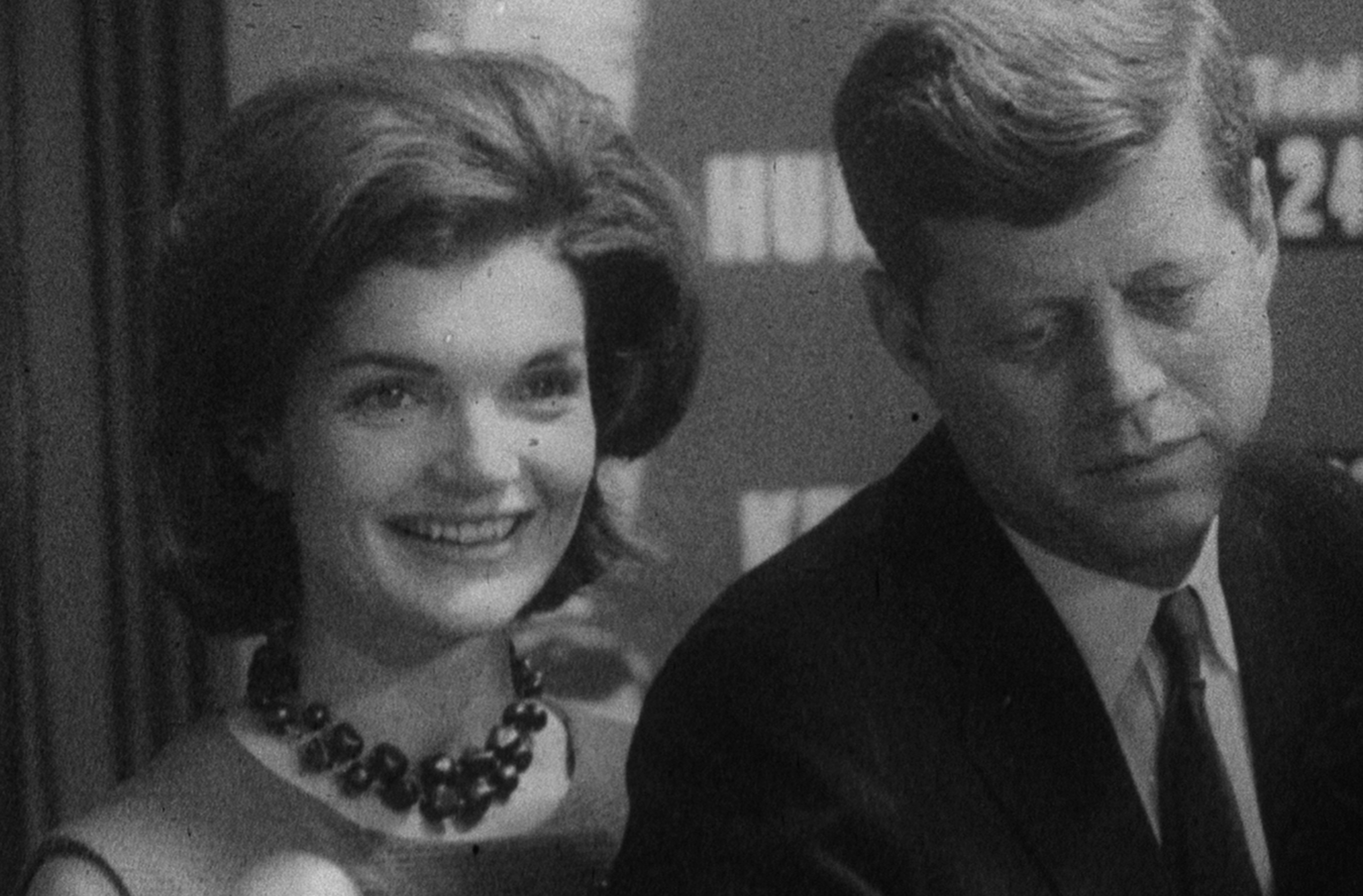The first of four critically acclaimed films focusing on John F. Kennedy, this landmark documentary travels along with the then-senator as he campaigns against Hubert Humphrey for the 1960 Democratic presidential nomination. Allowing viewers to experience events along with the Kennedys, the film captures JFK’s rational, charismatic presence, the frenzied urban crowds, Jackie Kennedy’s calm radiance, and Humphrey’s populist appeal. Revealing the personalities and politics of the campaign trail as they had never been seen before, “Primary” offers a compelling glimpse into the early career of one of the world’s most captivating leaders.
Filmmaker Robert Drew pioneered cinéma vérité in America by developing cameras and sync-sound equipment that were for the first time small enough to move along with people and capture real life as it happened. The groundbreaking films by Drew and his Associates set a new standard for documentary filmmaking, creating what John F. Kennedy understood would be a new form of history.
“I think we had an intellectual understanding from the start,” Drew said of Kennedy, recalling his earliest conversations with the then-Senator during an interview with Gary Arnold of The Washington Times on Nov. 21, 1993, marking the 30th anniversary of President Kennedy’s assassination. “Kennedy appreciated the fact that I was trying to improvise a new form of film journalism. I don’t think Sen. Humphrey did, although he was agreeable about allowing us to accompany him during the last days of the campaign. I believed very much in the fairness doctrine and made a point of equalizing the footage between each man.”
Although the film received raves when it was shown in Europe, none of the three U.S. television networks saw much merit in the unusually intimate and candid portrait of a hard-fought campaign. “You’ve got some nice footage there, Bob,” Drew recalls the head of one network telling him before waving him out of his office. Time-Life broadcast the film on its wholly-owned independent stations scattered across the country, but it did not receive much coverage in the U.S. until after European film world embraced the storytelling style as a new high art.
In France, a 26-minute version of “Primary,” edited by Richard Leacock, drew rave reviews when it screened with two other Drew Associates films in a four-week-run at the premier Paris avant-garde cinema house, La Pagode. “For the last six months it has become a rage. Whether one is in Venice, Paris, Tours, Rome, Moscow, or Leipzig, after five minute’s conversation they start talking about Drew, Leacock and their crew who are revolutionizing motion pictures,” wrote Georges Sadoul in Les Lettres Francaises in the spring of 1962.
“This is a cinema very new, very lively, very lucid,” enthused the French magazine Arts at the time. “One can imagine the possibilities. They are enormous.”

